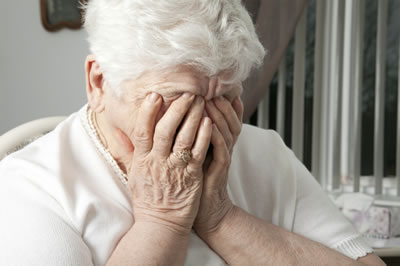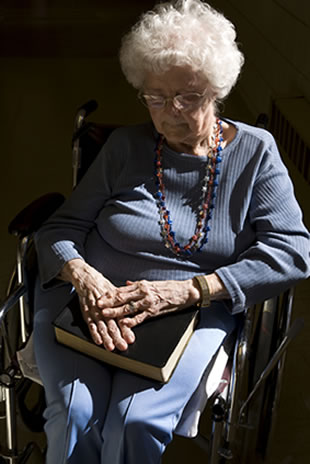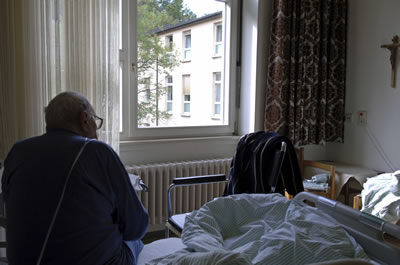Other Failures of Care
Physical Abuse
Physical abuse of a nursing home resident can take place in many ways and involves using force on an elderly person. Physical abuse is purposeful, not accidental. Physical abuse occurs in the following situations:
- Hitting, pushing, shoving
- Inappropriate use of restraints (including chemicals or drugs)
- Rough handling of residents – moving a resident forcefully during a transfer between bed, wheelchair and toilet. These types of incidents can cause injury, including skin tears, bruising and broken bones in nursing homes.
Our office handled an abuse case against an area nursing home where a certified nursing assistant twisted the leg of an elderly male resident until the resident’s leg suffered a spiral fracture. The CNA denied that she had abused the resident, but the treating physician testified that the fracture could have occurred no other way than through extended force of a twisting nature. Any time that an elderly individual is intentionally abused by an individual who is supposed to be caring for them, it is a tragic and emotional situation. However, our office was honored to represent this resident and his family and we were pleased to obtain a significant settlement on his behalf.

$2.8 Billion
Amount spent annually on hospital treatment for harm caused in skilled nursing homes
(Department of Health and Human Services)

Emotional Abuse
Emotional abuse of a resident can involve yelling, screaming, and cursing. Emotional abuse can also mean intimidation, humiliation or ridicule. Residents who do not have their basic needs met (often a result of under-staffed nursing homes) such as assistance with toileting – can also be victims of emotional abuse.
State and Federal laws protect all residents of nursing homes against any type of abuse. If you feel that a family member has been abused in a care facility, please contact our office for immediate, confidential help.
Sexual Abuse
This type of abuse can occur as employee-on-resident, resident-on-resident or visitor (friend or family) on resident and happens when a nursing home resident cannot consent to sexual contact or cannot prevent unwanted sexual contact. Sexual abuse can involve physical acts such as fondling and penetration, but also includes showing of pornographic material or being forced to watch sexual acts by others. Nursing home residents are not required to give up their sexuality upon entering a nursing home, but as many residents suffer from dementia or Alzheimer’s disease, they cannot knowingly consent to such activity and can be preyed upon by others, including family members. It is the responsibility of all nursing homes to be alert for the potential of sexual abuse, take steps to protect the abused resident, and report the activity promptly to law enforcement.
Our office has handled numerous cases involving sexual abuse of residents in care facilities. If you feel that a family member has been assaulted in a nursing home, please contact our office for a confidential consultation.
Elopement
According to the National Council of Certified Dementia Practitioners, it is estimated that over half of all people over the age of eighty-five have Alzheimer’s dementia or other forms of significant cognitive deficits. Nearly 50% of all nursing home residents in the United States suffer from either Alzheimer’s disease or other forms of dementia. The most commonly associated risk of these conditions is the tendency of these nursing home residents to wander. In fact, recent statistics indicate that in the United States, more than 34,000 Alzheimer’s patients wander, or elope out of their homes or skilled nursing facilities each year.
It is vitally important for skilled nursing facilities to have effective policies in place to prevent residents from eloping from the facility. Sadly, however, violations of these policies and procedures can lead to residents wandering from the nursing home only to be struck by motor vehicles or to experience life-threatening and even fatal injuries due to exposure to natural elements such as extreme heat or cold weather.
Our office has extensive experience in representing nursing home residents who have sustained injury after eloping from nursing homes. If a family member has been injured as a result of elopement or wandering, call us for a free initial consultation to determine your rights regarding such injuries.


Failure to Obtain Medical Treatment
A frequent cause of injury and death of nursing home resident’s is the failure of skilled nursing facility staff to recognize significant changes in a residents physical or psycho-social condition, which is often indicative of an emergent health care situation. Delay in observation of these changes and the corresponding delay in getting medical treatment for these changes in condition can have devastating consequences.
Recently, our office represented a nursing home resident who had exhibited obvious signs of a stroke, but who was not properly assessed by the nursing staff for hours, which resulted in a lost chance to obtain proper drug therapy to minimize damage from the stroke. If you suspect that a nursing home resident has not been provided with timely medical treatment for any condition, call us for a no-charge initial consultation.
Call Our Law Office Today - (800) 821-5872
Contact Form
Your initial consultation is always free and confidential.
